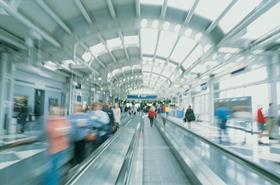
A new 3D x-ray unit is being trialled at international airports in Melbourne and Auckland.
The unit is automatically able to detect biosecurity risks in fruit and vegetable products that passengers fail to declare, and could be expanded to target significant biosecurity threats such as high-risk seeds and meat.
'So far the 3D x-ray at Melbourne Airport has screened 18,000 bags and detected over 1,200 risk items, at a detection rate of 7 per cent, with early signs showing it is significantly better at detecting items than the current system,” said Australian minister for agriculture, Bridget McKenzie.
“This is helping keep out diseases like citrus canker, which has led to extensive production losses in citrus industries across the globe and would wreak havoc on our million-dollar citrus industry if it established here.”
The x-ray images generated from both the Melbourne and Auckland units will be combined to create an extensive biosecurity risk image library.



